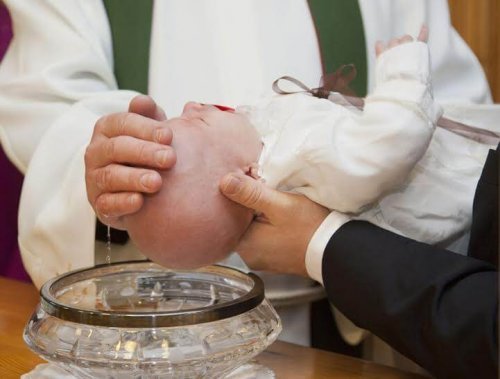The Role Godparents Play in a Child's Life

Historically, godparents were expected to take over in the caring and upbringing of their godchildren in the case of the parents’ absence.
However, today this is only true if there is a legal documenting attesting to the fact. And, of course, a judge has to analyze this document and take into consideration the child’s current situation and wishes.
Godparents versus legal guardians
As mentioned above, your child’s godparents fulfill a symbolic role at your child’s baptism. From that point on, they’ll be important figures in your child’s life.
However, their responsibility toward your child isn’t legally binding. In the tragic event that you weren’t able to raise your child, his godparents would have no legal claim in a court of law.
Just the same, your church may expect your child’s godparents to meet certain requirements.
For example, the church might require that the individuals be professing believers and members of a church.
They may also ask them to attend a pre-baptism class where they’ll learn about their participation in the ceremony and future responsibilities.
If you would like your child’s godparents to act as guardians in your absence, discuss this desire with them.
If they accept your proposal, then you should speak with a lawyer to create a legal document that states your intentions.
“Parents must take the choosing of their child’s godparents very seriously. This isn’t just about family obligations, nor is it about honoring a close friend”
What is a godparent’s role?
In general terms, parents should expect godparents to fulfill the following responsibilities:
- To form a tight bond with the child and be present all throughout the child’s life. It’s really important that a child’s godparent show an active interest in his daily life, and doesn’t just show up in photos of important events.
- The relationship should be one of trust. The people you choose should become like family. Your child’s godparents should be like a second father or mother that he can confide in, just like a friend. This sincere relationship will help to produce a fruitful bond.
- Godparents should act as guides in your son or daughter’s spiritual formation. This means providing a firm foundation and a good example. Sometimes, the teachings and guidance of a godparent are more welcomed than those of a parent – especially in teenage years.
- In the case of Catholic godparents, this role goes hand in hand with holding the parents accountable in the preservation of the faith.

How to know who’s right for the role
Aunts and uncles, siblings, grandparents, cousins… These are all bonds that form naturally due to family ties. However, godparents are chosen.
Naming your child’s godparents is something you must do consciously, keeping in mind the important influence this decision will have on your child’s future.
The individuals you choose should be family members or close friends. Make sure they really want to take on this role, and are able to participate actively in your child’s life.
Different families may have different traditions. For example, some families tend to ask close family members to act as godparents.
However, you may wish to invite a personal childhood friend to act as a godparent in order to keep that bond alive.
Some families choose godparents based on their economic status or position.
However, family tradition shouldn’t be the deciding factor. A godparent should be someone who has a healthy spiritual life that he can share with your child.
You should choose someone that you’re sure you’ll be able to trust in, and count on for a good education.
Influencing factors
Geographic closeness
While it’s true that social media brings us together, it’s better for your child’s godparents to live nearby.
It’s about providing a hug when your child needs it, going on outings together, and spending afternoons together talking about life. Of course, this decision is up to the parents.
Age
Older individual are great advisers, without a doubt. But you might want to consider how wonderful it would be for this relationship to last for many years to come.
When it comes down to making a decision, you might want to think about age difference as well.
Emotional closeness
This is another key factor. The people you choose as grandparents should’t just share your values and principles. They should also have the emotional intelligence to show their feelings.

The parents’ choice
Parents must take the choosing of their child’s godparents very seriously.
This isn’t just about family obligations, nor is it about honoring a close friend.
Godparents can have a deciding influence in the life of a child – and your child deserves the best.
The people you choose should be completely trustworthy and more than willing to accept this great responsibility.
Asking someone to be your child’s godparent is one of the greatest demonstrations of trust you will ever give.
All cited sources were thoroughly reviewed by our team to ensure their quality, reliability, currency, and validity. The bibliography of this article was considered reliable and of academic or scientific accuracy.
- Riambau, E. (1998). Padres, padrinos y patrones. Nosferatu. Revista de cine., (27), 32-34. https://riunet.upv.es/bitstream/handle/10251/41069/NOSFERATU_027_006.pdf?sequence=4
- de Quiñones Otero, D. V. (2015). Los padrinos en el Derecho civil. Revista de Derecho Civil, 2(2), 229-247. https://www.nreg.es/ojs/index.php/RDC/article/view/129
- Alfani, G., & Gourdon, V. (2016). Las familias y la elección de padrinos y madrinas de bautizo en la Europa católica en la Edad Moderna. Balance y perspectivas de investigación. http://rua.ua.es/dspace/handle/10045/59290
This text is provided for informational purposes only and does not replace consultation with a professional. If in doubt, consult your specialist.
